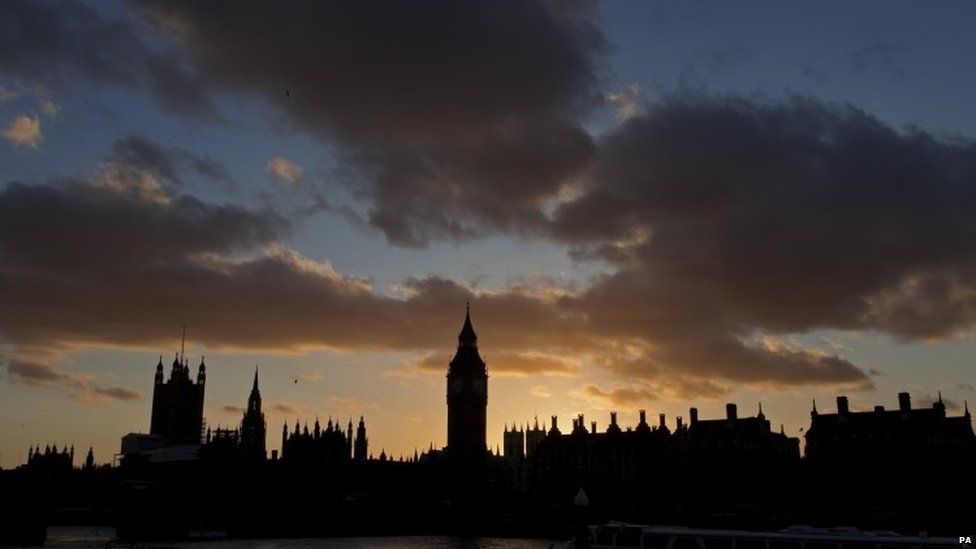English votes system 'unstable' warn MPs
- Published

The new system of "English Votes for English Laws" is overly complicated and may not last long, MPs have warned.
The Public Administration Select Committee said the arrangement could end up as a "short term experiment" due to levels of opposition in the Commons.
Legislation deemed to affect England, or England and Wales only, is now subject to an extra stage of scrutiny, involving only MPs elected there.
Ministers said it was an "important balance" to devolution elsewhere.
The rules, introduced in response to calls for a stronger voice for English MPs following increased devolution to Scotland, were activated in the House of Commons for the first time last month.
English and Welsh MPs gave their consent to parts of the Housing and Planning Bill that only apply to their constituencies, as part of a new stage in the legislative process for considering bills applying only to their constituents.
'Ad hoc'
In a report on the new system, the cross-party committee of MPs said there was "strong English demand" for measures to address the "constitutional anomalies" that devolution had brought.
But it said the new provisions were "ad hoc", lacked transparency and appeared incompatible with the 40-year old Barnett Formula for distributing funds to Scotland, Wales and Northern Ireland.
"The new standing orders do require further consideration and evaluation if they are to be anything more than a short-term experiment in the House's internal procedure," the MPs said.
"That former clerks of the House of Commons - individuals steeped in decades of learning about Parliamentary procedure - should have difficulty in discerning what these standing orders mean should raise serious further doubts about how sustainable they are."
The report said the test for whether legislation applied only to England, which is determined by the Commons Speaker, was not "very simple" and risked putting the Speaker in an "unnecessarily controversial position".
The extent of the opposition to the system, which has united Labour, the SNP, the Liberal Democrats, Plaid Cymru and the Democratic Unionist Party, "underlined their vulnerability", the committee said.
Review
The SNP has said the changes are "driving Scotland out of the door".
"With only the Conservative Party in favour of the new arrangements, these standing orders face a high risk of being overridden as soon as there is a non-Conservative majority in the House of Commons," it said.
"That the standing orders have attracted such hostility and can be removed on the basis of a simple majority must raise doubts as to whether they can ever be more than a temporary expedient, and currently they cannot be considered to be part of a stable constitutional settlement that will endure."
Tory MP Bernard Jenkin, who chairs the committee, said the new system had little cross-party support and urged ministers to come back with "more comprehensible proposals" during a review later this year.
A government spokesman said: "The government is committed to a stronger Union and a fair settlement for the whole of the United Kingdom, and English votes for English laws brings an important balance to the unprecedented powers that have been devolved to other parts of the country.
"We will be reviewing the operation of the standing orders later this year, drawing upon the work of both the Public Administration and Constitutional Affairs Committee and the House of Commons Procedure Committee."
- Published12 January 2016
- Published12 July 2021